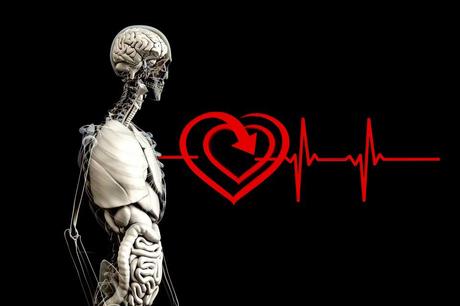Medicine is currently undergoing an AI revolution. With better advances in robotic technology, the medical field has been transformed and continues to evolve. AI’s success in healthcare is chiefly down to potential to make medical screening and applications more efficient, accurate, and cost-effective.
AI is currently being used in numerous ways within the field of healthcare. It has been utilised to monitor patients, schedule appointments, enable online check-ins, carry out patient reminders for appointments or vaccination dates, digitise medical records, administer medication through dosage algorithms, assist with surgical procedures, among many, many more applications.
While AI technology is certainly making its mark in the medical field, it’s still relatively new, therefore, the developmental possibilities for it within medicine are endless.

Filling the gaps
AI software can be used to fill the gaps in access to medical care for those in the world’s poorest countries. This makes it an attractive concept for patients, professionals, and innovators. There is no doubt that much of the AI technology advances within the medical field are thanks to the backing of various organisations and individuals. The Bill and Melinda Gates Foundation has backed funding to design AI software that helps diagnose child lung diseases without the need for highly-trained experts in resource-limited locations. Likewise, entrepreneur Tej Kohli supports AI and robotics ventures that make interventions to help rebuild people and communities around the world. Through the work of the foundation, Kholi has also helped push technology within prosthetics by funding multifunctioning bionic arms for children.
Better interpretation
A major goal of AI technology systems in healthcare is to analyze relationships between treatment or prevention techniques and patient outcomes. AI software can help medical professionals better understand the individual needs of patients, as well as better interpret medical tests. For instance, AI has been successful at detecting breast cancer in the early stages. Traditional mammograms can often give false results, meaning that some healthy patients are wrongly diagnosed as having cancer. Furthermore, radiologists can sometimes miss signs of cancer, either through human error or because the cancer is undetectable to the human eye. The application of AI technology within mammograms has allowed for better interpretation and review of results. Not only is such software much more accurate at translating results, it is much faster in doing so. Similar technologies are also being developed to enable better detection of early-stage heart disease, allowing medical professionals to catch life-threatening conditions while they are at a more treatable stage.
The future
While we might be a long way off from robots threatening to take over the jobs of doctors and other healthcare professionals, there is some concern about potential overuse of AI within the medical field. Machines lack the ability to reason and so would struggle if they were to be the only medical care providers. It’s much more likely that AI technology will continue to evolve to assist human medical professionals rather than completely take over from them. There is no doubt that robots can carry out complex tasks and process arduous information much faster and more efficiently than humans. Plus, AI’s contribution to medical science has enabled surgeons to perform more accurate and intricate surgeries. However, robots cannot feel emotion and lack the level of care which is a basic requirement for bedside manner.
